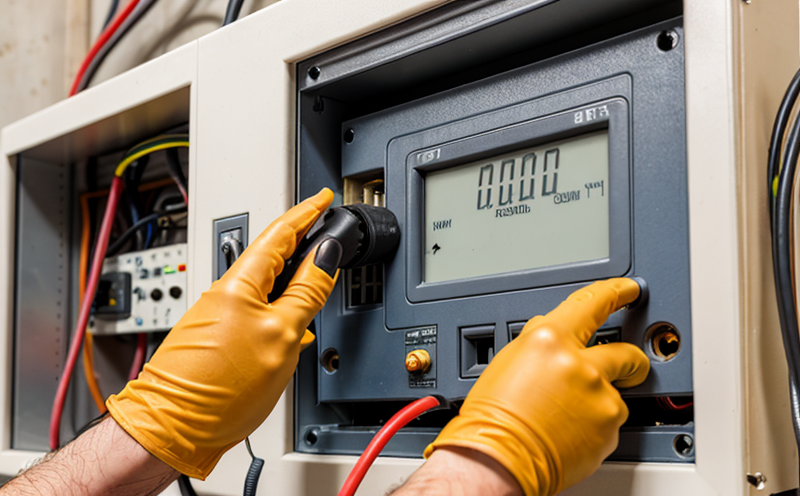UL 9540 Electrical Functional Testing of Energy Storage Systems
The UL 9540 standard provides a comprehensive framework to ensure that energy storage systems (ESS) are safe and reliable. This testing ensures the proper functioning and electrical integrity of ESS, which are critical components in renewable energy applications, electric vehicle charging stations, and more.
UL 9540 covers various aspects of electrical functional testing designed to evaluate how an ESS behaves under different conditions. This includes tests for overcurrent protection, short circuit current limiting, undervoltage disconnect, voltage recovery after a fault, and other critical functions that ensure the safety and durability of the system.
During the testing process, specimens are subjected to a series of controlled environmental stressors and operational scenarios. These include high and low temperatures, humidity, vibration, and even simulated fire conditions. The aim is to verify that the ESS can withstand these stresses without compromising its performance or posing a hazard.
The UL 9540 standard mandates specific test procedures to ensure compliance with safety requirements. Testing typically involves the use of sophisticated instrumentation such as current clamps, voltage probes, and data acquisition systems to monitor critical parameters in real-time. This ensures precise measurement and accurate documentation.
Once testing is complete, detailed reports are generated highlighting all findings, including any deviations from specified limits or conditions. These reports serve multiple purposes: they provide valuable insights for improving product design; they aid in compliance with regulatory requirements; and they offer assurance to end-users that the ESS meets rigorous safety standards.
The importance of UL 9540 cannot be overstated, especially given the growing adoption of renewable energy sources. By adhering to this standard, manufacturers can ensure their products are safe for deployment in various environments, thereby enhancing public confidence and trust in these technologies.
For those involved in quality management, compliance officers, R&D engineers, and procurement teams, understanding UL 9540 is crucial. This knowledge helps in making informed decisions about product development, manufacturing processes, and supplier selection.
Eurolab Advantages
At Eurolab, we pride ourselves on delivering top-tier services that meet the highest industry standards. Here are several key advantages of choosing us for your UL 9540 testing needs:
- Expertise and Experience: Our team comprises seasoned professionals with extensive experience in energy storage systems testing.
- State-of-the-Art Facilities: We house advanced equipment necessary to conduct precise and thorough tests.
- Comprehensive Reporting: Every test comes with detailed reports that provide a clear picture of the system's performance.
- Rapid Turnaround Times: Our efficient processes ensure quick results without compromising on quality.
- Compliance Support: We help clients navigate complex regulatory landscapes to ensure full compliance.
- Certified Personnel: All our staff are trained and certified in accordance with international standards.
- Client-Centric Approach
Customer Impact and Satisfaction
The impact of UL 9540 testing on customers is profound. By ensuring that energy storage systems meet stringent safety criteria, we not only enhance product reliability but also foster trust among end-users.
Our services have been instrumental in helping numerous clients achieve successful compliance with regulatory requirements. This has led to increased market share and improved brand reputation for our clients.
Customer satisfaction is at the heart of everything we do. We regularly receive positive feedback from clients who appreciate our professionalism, attention to detail, and commitment to quality.
Use Cases and Application Examples
| Use Case | Description |
|---|---|
| Renewable Energy Integration | Testing ESS for integration into solar power systems to ensure seamless operation under varying conditions. |
| Electric Vehicle Charging Stations | Evaluating the safety and functionality of ESS used in charging stations to support electric vehicles. |
| Data Centers | Verifying that ESS within data centers can provide reliable backup power during emergencies. |
| Homes and Commercial Buildings | Evaluating residential and commercial ESS for safety, efficiency, and performance. |
- Off-Grid Applications: Ensuring that ESS can operate independently without any external power source.
- Grid Support: Testing ESS to support grid stability during peak demand periods.





